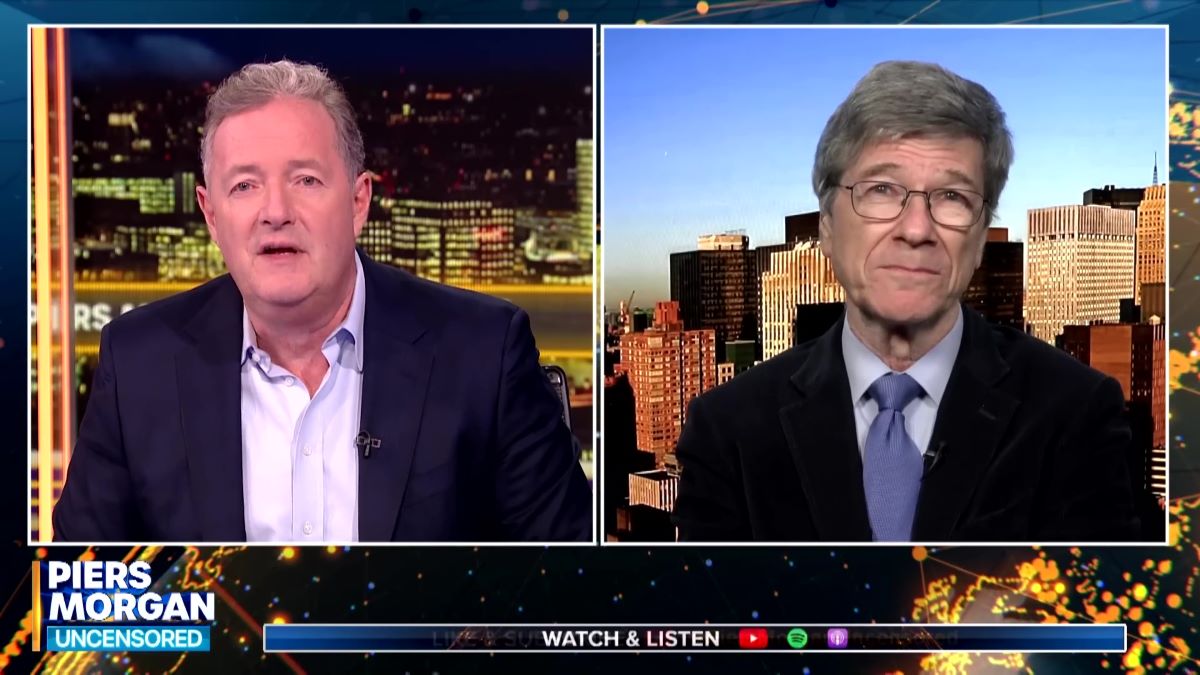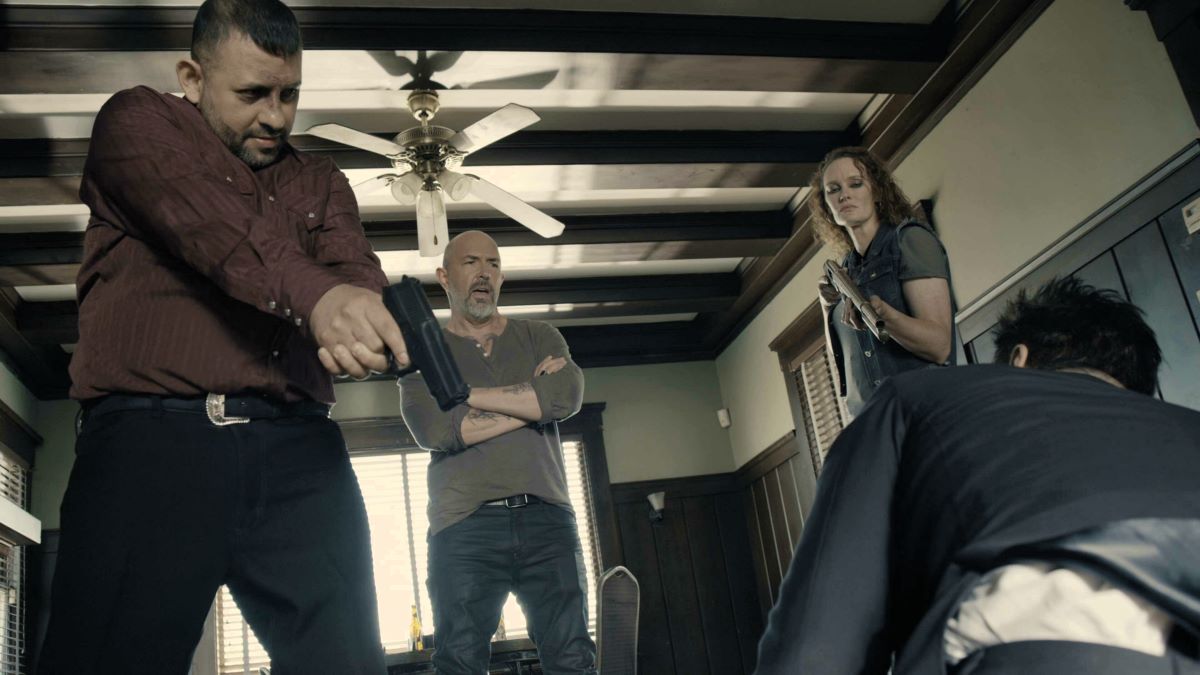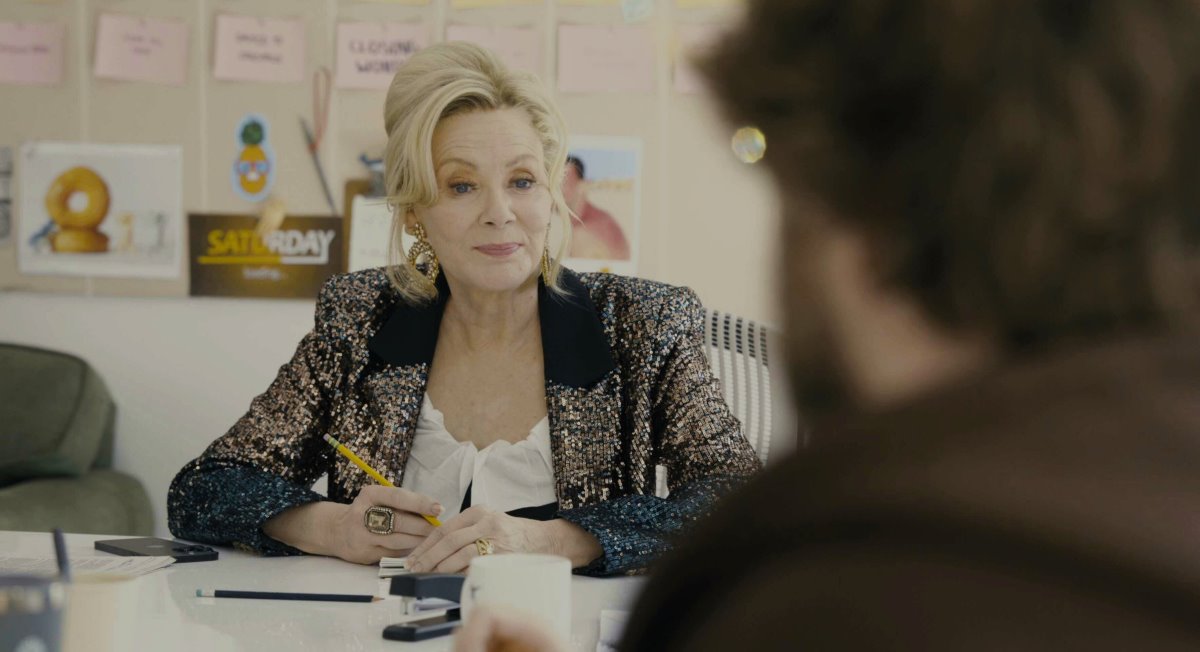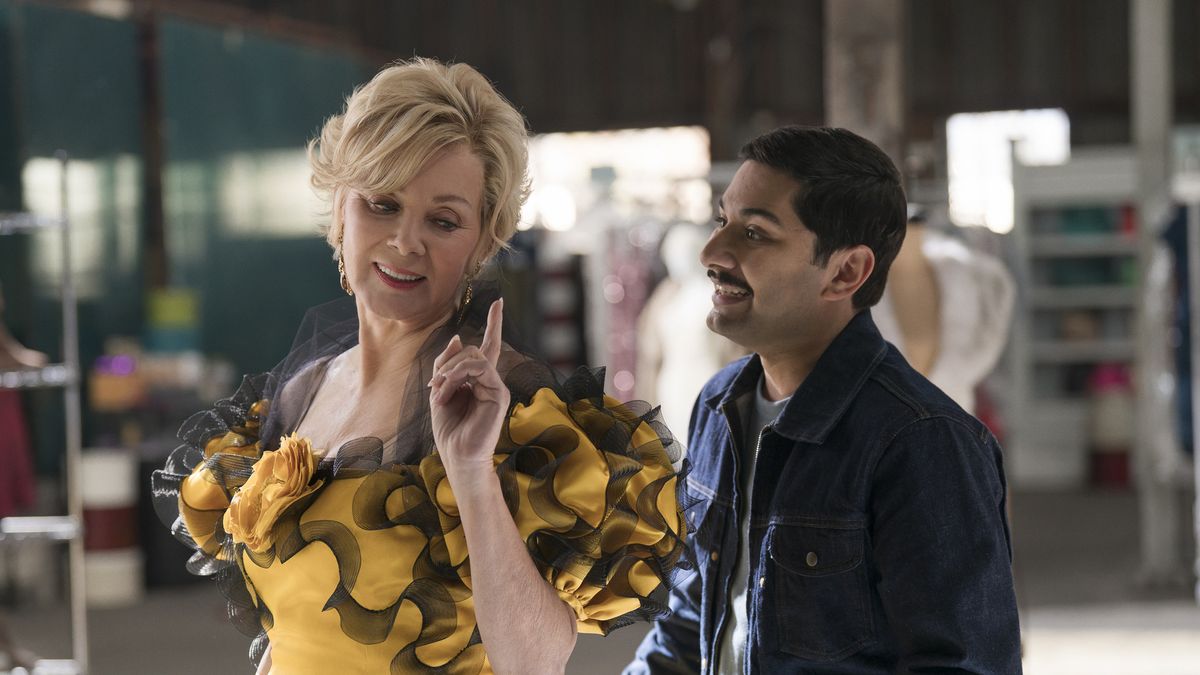March 19, 2024
Piers Morgan is joined by Professor Jeffrey Sachs to discuss Vladimir Putin’s fifth term as Russia’s President, the ongoing war in Ukraine and who he thinks is to blame, America’s potential TikTok ban, along with Israel’s actions in Gaza.
Sachs criticises the United States who he says is responsible for exacerbating tensions with Russia, particularly through support for Ukraine and NATO expansion.
He argued that the overthrow of the Yanukovych government in 2014 was a critical turning point that led to the current crisis in Ukraine. By pushing for regime change and destabilizing the region, the US inadvertently contributed to the escalation of the conflict and strained relations with Russia.
* * *
PIERS: Professor, thank you very much indeed for joining me.
JEFFREY: Great to be with you, thank you, Piers.
PIERS: First of all, your reaction to Vladimir Putin winning this election? I mean, nobody is surprised. Uh, he’s fixed it so that he’ll always win as long as he runs. But is this free, fair, right, proper?
JEFFREY: Well, it’s very Russian. This is a Russian tradition, I think he’s quite popular, in fact. But this is a Russian tradition, it’s part of Russian culture. Uh, he’s a strong leader, uh, and the Russian people expect a strong leader, and we have to deal with a strong leader in Russia.
PIERS: The Wall Street Journal recently put you first on its list of Putin’s American cheerleaders. How did you feel about that?
JEFFREY: I didn’t even see that, so interesting that you tell me. Uh, it’s not exactly my point. My point has been for years: let’s uh, avoid this war, and let’s stop the war in Ukraine. It’s not a matter of cheerleading; it’s a matter of common sense. I go back to this issue more than 30 years. I was an economic advisor to President Gorbachev’s team, and then President Yeltsin’s team, President Kuchma’s team in Ukraine, so I’ve known this landscape for more than 30 years, and my view is that this war was completely avoidable, uh, and uh, could have been ended, uh, uh, it could have been avoided entirely for years and years, and could have been ended in March 2022. But, uh, it persists because we don’t have a sensible approach.
PIERS: But isn’t the reality, see, that Putin always wanted to get his hands on Ukraine? He’s now got his hands on Ukraine, by killing a lot of Ukrainians and invading the country illegally. Invading a sovereign, democratic country illegally. And whatever his protestations about NATO encroachment and so on, this is of course exactly why Ukraine wanted to be part of NATO. And that perhaps the biggest mistake Ukraine made was to give up his nuclear weapons.
JEFFREY: Well, I think the mistake is that Ukraine should have been a neutral buffer between Russia and uh, and NATO, uh, and that’s uh, how it started out as an independent state in 1991. The United States had its eye on getting Ukraine into the US orbit, uh, already from 1992. Brzezinski spelled it out in 1997. Many people thought this was a path to disaster, and it’s turned out to be a path to disaster. So it’s very sad, uh, it could have been peaceful, and uh, neutral, and independent, and uh, that wasn’t good enough for the United States, and uh, I understand completely why Russia wouldn’t want NATO on the 2,000-kilometer border uh, of Ukraine and Russia. So, it’s just very sad, very predictable. George Kennan called it exactly in 1997. Uh, interestingly, our current CIA Director, Bill Burns, who was in 2008 the US ambassador to Russia, sent back a famous memo called ‘nyet means nyet.’ Uh, no, don’t do it. It’s not just Putin; it’s the entire political class that absolutely rejects Ukraine in NATO, and we should have been prudent, but we’re not very prudent. We had our designs, uh, and we have uh, walked into a disaster, but more than that, we talked Ukraine into a complete disaster.
PIERS: I mean, the other way of looking at this is Ukraine wanted to be a sovereign, democratic country after the breakup of the Soviet Union. In fact, a vast majority of people in Ukraine voted for that, and that this was uh, the complete antithesis of how Putin saw the lay of the land, and he thought, no, I’m not having that. I’m going to go and grab Crimea, then I’ll grab a lot of Ukraine, uh, try it in Georgia. I mean, at what point does he do this stuff where even someone who’s trying to be fair-minded about his intentions like yourself might think, “I wonder if I’m right, and maybe he is just a pathological liar and a homicidal maniac?”
JEFFREY: Piers, the real screw-up by the US was not just pushing NATO, but uh, playing real games and participating in the overthrow of Yanukovych in February 2014. We overthrew a government; the United States played a major role in that. I happen to see some of it firsthand, pretty ugly but pretty standard stuff. This is what the US does: it, when it doesn’t like a, a government or government standing in the way, it stirs things up, it uh, puts in a lot of money, it funds unrest, it stokes uh, unrest, and it did that in February 2014. That was really the huge mistake. That was a gambit, a typical so-called covert but not very covert uh, US regime change operation, uh, and it was absolutely the path to the disaster that we’re in right now. So I think the main point is, you have two sides playing a lot of games, but for the United States to be pushing so hard to Russia’s border was absolutely premeditated and stupid, really stupid. It got us into this mess, and you could see it coming so clearly for the last 10 years.
PIERS: What is your view of–
JEFFREY: I begged the White House, many times, uh, avoid the war, stop, just tell them NATO’s not coming. You know, Ukraine will do just fine, and they wouldn’t do it, because this has been a 30-year project of the United States. Also, this is how it works. This has been a longstanding game; Brzezinski laid it all out for us in 1997. So we’ve seen it.
PIERS: But what is your view of Vladimir Putin?
JEFFREY: Well, I think he’s very uh, smart, very tough, uh, and uh, I think he’s says what he means. In 2007, he said don’t do this, at the Munich Security Conference, famously. He said, all right, you went violating what I know to be true, by the way, which was not an inch eastward for NATO, promised by James Baker III, and by Hans-Dietrich Genscher to Gorbachev in 1990. I know that’s for sure the case. Uh, the United States expanded NATO to Poland, Hungary, Czech Republic, uh, in the Clinton period, and then to seven more countries in 2004: Latvia, Lithuania, Estonia, Slovakia, Slovenia, Romania, and Bulgaria. And then in 2007, Putin said, stop, all right, stop, no more, not to Ukraine. So what does George W. do in 2008 in Bucharest? Of course, what does he do? He says, guarantee Ukraine and Georgia. And uh, you know, this is Palmerston’s Playbook from uh, 1853. So we’re going to surround Russia in the Black Sea again, exactly that.
PIERS: Okay, they, you know, I don’t, just to though, I just asked you what your view of Putin is, and so far you’ve just said he’s smart and tough.
JEFFREY: I just said, I told you, he, he, he clearly–
PIERS: Any negatives, Professor?
JEFFREY: I believe that the big mistake of both sides is we should talk this out. And now let me say a word about talking it out. In 2008, when Bucharest happened, European leaders called me because I’m friends with them. They said, what is your crazy president doing? By the way, some who are in power right now, I won’t name names. What is your president doing? Why is he destabilizing things? He promised he wasn’t going to push Ukraine. That’s what European leaders say in private. They don’t say it in public. We avoided the negotiations. Then 2014 came. Sadly, Piers, I saw it. I saw some of it firsthand. It was ugly. The United States should not be funding overthrows of governments. We did. I know it. Okay, so I happened to be there soon afterwards with the handpicked government, handpicked by Victoria Nuland. We didn’t talk then, then came the Minsk agreements, and then the United States said privately, even though the UN Security Council has backed both Minsk one and Minsk two, you don’t have to do this. And so, with Poroshenko, don’t worry about it. Then, we heard of course Chancellor Merkel say afterwards, yeah, we weren’t taking it too seriously, even though Germany and France were the guarantors of that. Then on December 15, 2021, Putin put it down in a draft US-Russia security agreement. I read it, I called the White House, I said, you know what, you can negotiate on this basis, avoid the war. No, no, no, there’s going to be no war, Mr. Sachs. I said, just tell them that NATO is not going to enlarge, you’ll avoid the war. No, we’re never going to say that, we have an open-door policy. So, what kind of open-door policy? We’ve had 200 years of the Monroe Doctrine, some open door policy. No, no, no, Mr. Sachs. Then the war breaks out, then immediately Zelensky says, okay, okay, we can be neutral, we can be neutral, and negotiations start. As you know, Naftali Bennett, informally the Prime Minister of Israel, and Turkey, with its very skilled diplomacy. I actually flew to Ankara to discuss with the Turkish diplomats what was going on. The US stopped the agreement. Why? Because they thought, we’ll win, we can bleed Russia. Our sanctions, you know, cutting them out of the banking system, we’re going to bring them to their knees. It’s a bunch of terrible miscalculations is what it is. It’s a game. A terrible game.
PIERS: I hear you. What I’m fascinated by, though, is I’ve asked you to say what you think of Putin, and so far, like I say, you’ve only called him tough and smart. This is a guy that kills his political opponents. This is a guy who rules his like a gangster’s. I, I find it, I’m struggling to understand why you can’t find any negatives for the guy. He’s a dictator.
JEFFREY: Because I’m trying to, because I’m trying to find peace, and you don’t do it the way that Biden does. Biden said, okay, he’s a thug. Biden says, he’s a crazy SOB. That’s real good, Joe. That’s really getting us to where we want to go. That’s hundreds of thousands of Ukrainians dead. Why don’t we move–
PIERS: Professor, can you not find, can you not find anything negative to say about Vladimir Putin?
JEFFREY: I don’t think that what I say about Putin, negative, has anything to do with anything. What I’m saying is, as I know, you got,
PIERS: You’re ready to call him smart, you’re ready to call him tough, but you can’t find anything bad to say–
JEFFREY: I wrote a book about the Cuban Missile Crisis and its aftermath. Kennedy didn’t go name-calling Khrushchev. He tried to save the world. To stop the war. Afterwards, he didn’t insult Khrushchev. What he did was sat down with him and negotiated the Partial Nuclear Test Ban Treaty. We’re not in a game, we’re not in name-calling, we’re not in a cage brawl. We’re trying to actually not have the world spiral into nuclear war. So, it’s not that game. The game is sit down and negotiate.
PIERS: No, I’ve got my final point on this, is that your critics, as you know, say that you’re a purveyor of anti-American talking points, particularly when it comes to the notion of American exceptionalism. And I’m just curious, you’ve been very sort of praiseworthy of Putin’s strengths, and pretty critical of America, but you don’t seem to want to say anything critical of Putin or Russia.
JEFFREY: I’m an American, and, and I follow, I call it Jesus’s foreign policy advice, which is, why do you point the mote in the other eye when you have the beam in your own eye? I want us to do better. I want us to have a counterpart. I want us to sit down and negotiate and make peace. I don’t believe name-calling is the way to solve problems in the nuclear weapons age. I believe that sitting down and negotiating an outcome, and having it transparent, is the way to do it.
PIERS: Do you think Alexei Navalny’s family would agree with that?
JEFFREY: They probably would not.
PIERS: The House of Representatives in Congress voted 352 to 65 to pass a measure that will lead to the forced sale or ban of TikTok in America, and it’s because of concerns that it’s Chinese-owned and could be used to monitor and manipulate Americans. What do you think of this?
JEFFREY: I think it’s absurd. I think we’re in the middle of–
PIERS: Why?
JEFFREY: Because I think we’re in the middle of a very typical American paranoid phase. This is a country that knows very little about, I mean, where the political class, let me say, knows very little about anything. I know a lot of these congressmen. They’re not very intelligent. They don’t know anything about China. Most of them have never been to China, and we are stirring up, again, a kind of hatred that has absolutely no basis, in my view. Who is most likely to spy on me, by the way? My own government, by far.
PIERS: Do you not see China as a national security threat to the United States?
JEFFREY: Not, not at all.
PIERS: Really?
JEFFREY: Not at all. Not at all.
PIERS: You seem very, very, um, unbothered by these authoritarian regimes.
JEFFREY: Yeah, because I don’t think China’s about to invade the United States or do damage to us. You know, I have been going to China for 40, uh, 43 years now, uh, and most of the time several times a year. And I have studied and written about Chinese history, Chinese economic history. I have taught many Chinese students. I have been engaged in many research programs. Do I find China a threat to the United States? No, not at all.
PIERS: What if China invades Taiwan, as seems increasingly likely in the next three years?
JEFFREY: Well, the thing that would make it most likely, as I have said to Taiwanese friends and senior officials, is for the United States to be shipping armaments to Taiwan because the United States is doing exactly what it said it would not do. It said 40 years ago, actually a little more than 40 years ago, in a very important and famous communique, that the United States not only observes the one-China policy but it has no intention of providing arms to Taiwan over the long term, and that it is going to taper off its arms supply to Taiwan. So, in this sense, I think the United States, as usual, is stirring up things.
Is it really smart, for example, for the Speaker of the House, over the objection of Beijing, to fly to Taiwan? I think it’s absolutely reckless and stupid. Do I think it’s in Taiwan’s interest? Absolutely not. It’s exactly what we were talking about with Ukraine. Do I think that arming Ukraine and telling Ukraine, “We’ve got your back,” really helps Ukraine? No, I think it puts it at the greatest risk of its survival. So, we don’t know how to calm down a little bit, give a little space. I believe Taiwan’s part of China. I believe in the one-China policy myself. I don’t believe in the United States unilaterally sending armaments to China, 42 years after we said firmly that we’re not going to do that for the long term. So, I don’t believe in it. No.
PIERS: You’re very trusting, Professor Sachs. Russia, China–
JEFFREY: I want to have normal, I want to have normal, mutually respectful relations with other countries. I actually happen to like Chinese civilization. I think that they’ve done a wonderful job of economic development over the last 40 years, the most successful for any large area in the whole world. I’ve seen a lot of it close-up, and I want to have mutually respectful, calmer relations, not arms races, not wars, not new nuclear submarine power, nuclear-powered submarine bases in Australia, and new military bases being announced in the Philippines. And by the way, building huge new NATO bases in Romania, this isn’t the way to peace. This is the way, absolutely, to spiraling violence and war, and I’m against it. I think we talk with others, you have diplomacy, you negotiate, you don’t call them names, you sit down, and you work out mutual security interests, which I absolutely believe in.
PIERS: Are there any bad guys in the world? I mean, are you a fan of Kim Jong-un, North Korea?
JEFFREY: I’m not a fan of these people. I want to have normal relations with them. That’s another interesting case, by the way. We said, in the late 1990s, we will take steps for building a relationship so that North Korea would not become a nuclear-armed nation. And then John Bolton came in, in 2002, said that’s all stupid, we don’t have to do anything with these people, and so on. So, where are we today? Of course, we’re in a vastly more dangerous situation than we were 20 years ago, no thanks to any US common sense.
PIERS: What would you have done with Hitler in 1939, when he invaded Poland?
JEFFREY: No, we did what we did, which was to fight him after every evil.
PIERS: We actually appeased him first. Neville Chamberlain thought he got a peace deal because he thought, you know, he’s very sort of generous in his view of Hitler and his intentions.
JEFFREY: Yeah, I don’t think that the generosity was right. I think the intention to negotiate was right. But then, Hitler exposed himself for completely what he was.
PIERS: You know that quote about appeasing crocodiles.
JEFFREY: Yeah, but by the way, it was not, not to make too much of a point of it, because Chamberlain was not very clever or astute to go back and declare peace in our time. But that’s different from trying to negotiate. And the fact that Hitler absolutely violated every single word that he said is what made Churchill be able to be Churchill. So, this is, uh, fine, you negotiate. If the negotiations fail, you do something different. This is clear. I’m not saying that everything gets solved by negotiations. But we’re going out of our way, out of our way, every day to avoid negotiations. And we’ve been doing that for 15 years, in the particular case of Ukraine. I know it, because they never negotiate over this. They don’t even negotiate. That’s the whole point. No one to talk to.
PIERS: I want to talk to you, uh, before we finish–
JEFFREY: That’s not true!
PIERS: I hear you. I want to talk to you before we finish about Israel and the war with Hamas. You know, I’ve said repeatedly in the last few months, it’s a very difficult situation, in the sense that Israel was subjected to an utterly horrific terror attack and obviously had to respond. You have a population where half of the population is children. Hamas clearly lives amongst that civilian population. And if you want to get rid of Hamas, who have gone on the record since October the 7th saying they want to repeat it again and again and again, so everyone would understand, how do you get rid of them without doing what Israel is doing? And yet, by doing what they’re doing, they’re encountering more and more public rage around the world. Where’s the moral position here for you on this?
JEFFREY: Well, the problem is that Israel has the most extremist, religious nationalist government in its history, so they have no intention of living side by side with the Palestinians under any circumstances. If you look at what this government actually represents, it’s not hidden from view. It’s directly stated almost every day: greater Israel, which means from the Jordan River to the Mediterranean. They want to rule over all of the territory. So there’s no endgame here politically other than complete domination or ethnic cleansing or slaughter or whatever, and with a government like that in Israel, there’s nothing but war ahead. So this is the terrible problem. And, uh, I happen to know this situation also very well because it’s now 52 years since I started going to Israel. We’ve never seen anything like this government. This is the most right-wing, extremist, zealous, Messianic rule-over-all-of-Palestine group that is imaginable.
PIERS: I agree. I actually agree with you about that, but I always come back to how would any Israeli government be expected to respond to what happened on October the 7th? It was so outrageous, so overwhelming, they couldn’t do nothing. So what do they do?
JEFFREY: Yeah, well, I have a particular approach, which is that there’s no way that the Palestinians and the Israelis are ever going to reach peace. So I think that the world community, through the UN, should impose it. That is, two states, which the whole world, other than those two countries, agree on. Even the United States, Britain, everybody agrees on that. Impose the two states, put in peacekeepers, get a normalization of relations between Israel and the Arab countries based on a demilitarization of Hamas as well. And by the way, I speak to Arab leaders and diplomats all the time; they’re ready for this. So this is again an area where diplomacy is right. The idea is, don’t think about this as Netanyahu versus Hamas. This is not the point. This is about Israel, the state of Palestine, Saudi Arabia, Egypt. These are big players, uh, and this is a case, by the way, where there’s no difference between what the US, Britain, France, China, and Russia want, also: two states according to international law, mutual security for the two. But don’t expect that to come from Smotrich, Ben-Gvir, Netanyahu, Galant, and Hamas. Impossible, ridiculous.
PIERS: Professor, on that, I completely and utterly agree with you on that. You may be startled to hear. Um, just want to end by–
JEFFREY: I’m not startled at all!
PIERS: I, um, I’ve enjoyed our conversation. I just want to end with America because you’ve been very critical of your own country. Tell me some good things about your country.
JEFFREY: We’re awfully confused right now, though. It’s a beautiful spring day here, but, you know, we’re, look, the truth is we’re in the worst confused state politically that I’ve seen in my lifetime. We don’t solve any problems in the United States. We’ve got two lead candidates that nobody wants to be the lead candidates. It’s really, really, it’s not good. You know, the truth is the underlying strength of this country is remarkable. I live in New York City. You know, there are 200 languages spoken here. It’s a wonderful place, uh, and I admire all of that diversity. But politically, we’re just broken right now. The system’s corrupt. It’s broken. So much money changing hands. It’s probably a $1.5 billion campaign, means a lot of rich people, a lot of that are doing the bidding right now. Uh, it, we used to call them the rotten boroughs in English history. That’s what we have in the United States right now.
PIERS: Are you Trump or Biden come November?
JEFFREY: I’m holding my hands like this.
PIERS: Professor Jeffrey Sachs, thank you very much for coming on our show. I appreciate it.
JEFFREY: Pleasure to be with you. Thank you.





